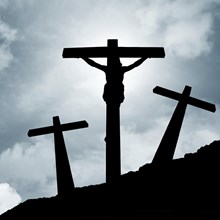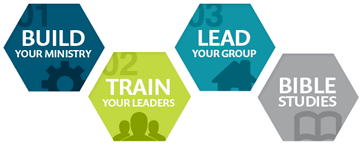Good Friday and Easter are the very essence of Christianity. There is no more important observance or celebration in the Christian calendar. Yet what do the Cross and the Resurrection mean to our lives? How can they change the way we live?
Session One
Why Jesus Had to Die
Conquering our sin is the reason for the Cross.
Luke 15:11-32; Romans 7:7-25; Ephesians 4:17-32; 1 John 1:8-2:6; 3:4-10
This study shows how we'd like to think of our post-conversion lives as a spotless and continuous pursuit of sanctification. But as Mark R. McMinn reflects in a Christianity Today article, we can persist in sin for years without realizing it. So what is sin and how can we recognize it? Why isn't our sin immediately apparent to us after conversion? And is there a balancing act between knowing our wretchedness and accepting the grace of Christ?
Session Two
The Cross and Our Guilt
Since Jesus died for our sins, should we still feel guilt?
1 Timothy 1:15-20; Hebrews 10:1-3, 10, 14, 15-22; 1 John 1:6-9
This study looks at how some people struggle with guilt and how others have simply learned to live with it. In his Christianity Today article, Philip Yancey says there's a better way for believers to handle guilt. It can even work for us as we seek to grow in Christ's likeness. This study asks, "If God forgets our sins, why can't we? Or should we?"
Session Three
Encounters with the Risen Lord
Jesus allows individuals to recognize him as the risen Lord in unique ways.
Luke 24:36-49; John 10:2-6; 20; 21
This study zeroes in on how the risen Christ appeared to his followers in different ways, which demonstrated his care for their uniqueness. He continues to meet people in distinctive ways today. "God comes to us in various ways, accommodating our pain, fear, doubt, abstraction, and pride," says John Witte Jr. in his article for Christianity Today. In what unique ways did Jesus meet his followers after his resurrection? How did his appearances demonstrate his consideration of their life experiences, emotional fragility, and individual personalities? How does Jesus meet people today? How do we respond with grace to other believers who experience Christ in ways that are unfamiliar to us?
Session Four
A Resurrection That Matters
Our salvation stands on the Cross, but it is also founded on something more.
Acts 2:14-36; Romans 8:18-25; 1 Corinthians 15:12-28; Colossians 3:1-11
Without Jesus' death, there is no access to heaven for sinners and no hope for lasting moral improvement. Author J. R. Daniel Kirk, in the Christianity Today article, "A Resurrection That Matters," was a leader at his InterVarsity group in college and had such a Cross-centered outlook. Yet one Easter he came to realize that his theology was missing something very important—the Resurrection. "One day as I was walking back to my dorm," Kirk says, "it dawned on me that the gospel as I understood it had no need for Jesus to be raised from the dead." Does your gospel have room for the Resurrection? This study will help show you why it should.
Total number of pages—44





